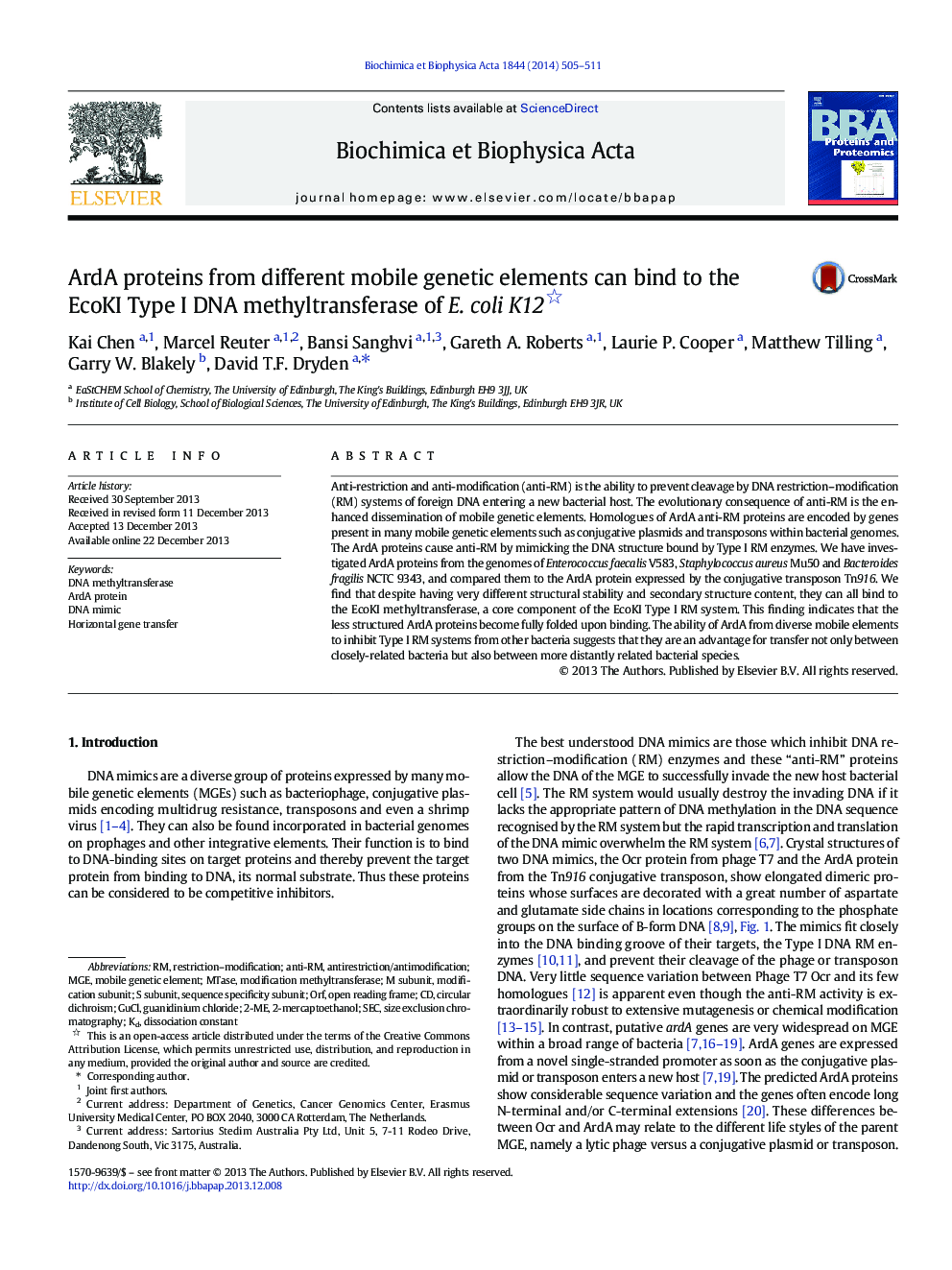| Article ID | Journal | Published Year | Pages | File Type |
|---|---|---|---|---|
| 10536928 | Biochimica et Biophysica Acta (BBA) - Proteins and Proteomics | 2014 | 7 Pages |
Abstract
Anti-restriction and anti-modification (anti-RM) is the ability to prevent cleavage by DNA restriction-modification (RM) systems of foreign DNA entering a new bacterial host. The evolutionary consequence of anti-RM is the enhanced dissemination of mobile genetic elements. Homologues of ArdA anti-RM proteins are encoded by genes present in many mobile genetic elements such as conjugative plasmids and transposons within bacterial genomes. The ArdA proteins cause anti-RM by mimicking the DNA structure bound by Type I RM enzymes. We have investigated ArdA proteins from the genomes of Enterococcus faecalis V583, Staphylococcus aureus Mu50 and Bacteroides fragilis NCTC 9343, and compared them to the ArdA protein expressed by the conjugative transposon Tn916. We find that despite having very different structural stability and secondary structure content, they can all bind to the EcoKI methyltransferase, a core component of the EcoKI Type I RM system. This finding indicates that the less structured ArdA proteins become fully folded upon binding. The ability of ArdA from diverse mobile elements to inhibit Type I RM systems from other bacteria suggests that they are an advantage for transfer not only between closely-related bacteria but also between more distantly related bacterial species.
Keywords
Related Topics
Physical Sciences and Engineering
Chemistry
Analytical Chemistry
Authors
Kai Chen, Marcel Reuter, Bansi Sanghvi, Gareth A. Roberts, Laurie P. Cooper, Matthew Tilling, Garry W. Blakely, David T.F. Dryden,
